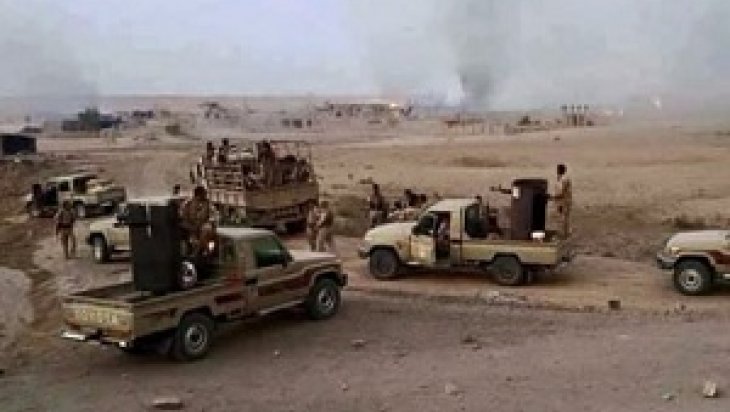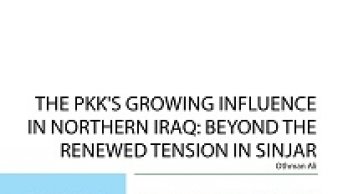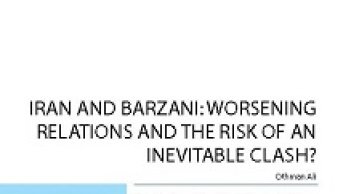National Reconciliation in Iraq and the Battle for Mosul

Once again talks are being held among Iraqi groups in the country and abroad regarding national reconciliation efforts. Ammar al-Hakeem, the head of Shiite National Alliance, has recently stated that he developed a detailed project for national reconciliation.He argues that this project is the result of intensive and constructive talks with all Iraqi groups and has backing of concerned regional governments. Moreover,the United States and the UN will have a role in it, too. The specifics of the project are to be announced after the battle of Mosul comes to an end,following the imminent official declaration of victory over DAESH.
However, the facts on the ground in Iraq do not seem as rosy and promising as Hakeem thinks them to be, due to many internal and external factors. Although the national reconciliation was an important part of the program of al-Abadi government when it was formed, no concretesteps have been taken so far in this regard. This is partly because of irreconcilable conflicting ideologies and programs of the political parties, which have been part of his government. The Sunni Arabs are still as marginalized and alienated as they were under al-Maliki government.Regarding that point, it is noteworthy to mention here that two months ago al-HashdShaabi law was passed by the Shiite-dominated Iraqi parliament without taking into consideration the concerns and fears of the Sunni groups regarding the law. Moreover, the Shiite groups are acting unilaterally on many issues related to the future of Iraq. The Shiite leaders are using the power and state resources which are at their disposal to weaken Sunni groups and to cause further division within their ranks.
The relations with the Kurdistan Regional Government (KRG) is equally troublesome and is moving from bad to worse with no hope on the horizon for compromise regarding the control of rich hydrocarbon resources of the region.KRG is also frustrated with the lack of tangible steps to address the issue of the control over the “disputed regions” between Baghdad and Erbil, which has been the subject of the article 140 of the Iraqi constitution. The leadership in KRG insists that referendum and separation from Iraqi are inevitable. Consequently, the discourse in KRG is no longer about national reconciliation. It is about how to negotiate a peaceful separation from Iraq and to become two good neighbors.
Furthermore, the political observers of the Iraqi scene have all agree that the way the battle of Mosul will be carried out will determine whether there will be any room for Iraq to remain as a unified state. The battle is entering its fourth month and most of the province has fallen to the Iraqi forces and pro-Iranian militia groups formed predominantly from the Shiite groups. In spite of many promises to the US-led coalition and Turkey that the conduct of Iraqi forces in Mosul will be different than their conduct in the other Sunni Arab towns of Iraq , current reports from Mosul do not corroborate this.
Mr. Hayder al-Abadi,the Iraqi prime minister, seems once again in this battle, as in the previous ones, powerless in the face of the Iraqi military commanders who have been mostly Iranian-trained and served in the past in Shiite armed groups which were founded by Iran to fight Saddam's regime. Most of these generals are still sympathetic to the former PM, Nuri al-Maliki. Although the counter terrorism force and the 9th division of the Iraqi army, which are leading the on-going battle in Mosul,have been trained and equipped by US forces in Iraq, after the departure of the US troops in 2011, al-Maliki had managed to remove most Sunni Arabs and the Kurdish officers from these regiments. Today, non-Shiite officers and rank-and file soldiers constitute less than 5% of the force fighting in Mosul. It is no wonder that most of the vehicles which are used by these forces have sectarian slogans written on them.
In addition, al-Abadi and the former US president Barrack Obama have given numerous assurances to the regional Sunni leaders that units of Hashd al-Shaabiwill not be used in this battle.Nevertheless, they have been used initially in western parts of Mosul, and they are planning to enter Talafar town. Furthermore, groups of Shiite militia have entered the districts of eastern parts of Mosul chanting sectarian slogans before the main Sunni mosques in the town and raising their flags on NabiYounis shrine which have been earlier destroyed by DAESH.
Finally, the security forces which took over the Mosul university have already given the task of administration of the university to Shiite elements. The concerns about Shiite dominance in Mosul are high. At the same time, Atheel al-Nujaifi , the head of Nininava Guards, and his forces have been marginalized, facing trial for treason by the central government.
Taking into account what is going in Mosul andthe recent clashes in eastern part of Mosul between Hashd units and Peshmerga loyal to MasudBarzani's Kurdistan Democratic Party,any talk on national unity looks bleak, and irredentism,which has been on the rise in Iraq from various groups since the downfall of the authoritarian Saddam Hussein, is now stronger than ever. Hakeem may launch his national reconciliation project soon, but the Shiite, Sunni, and Kurdish groups may decide to continue to look inwardly and protect only the interests of their own entity, which would deal a major blow to the efforts to prevent Iraq’s disintegration.







